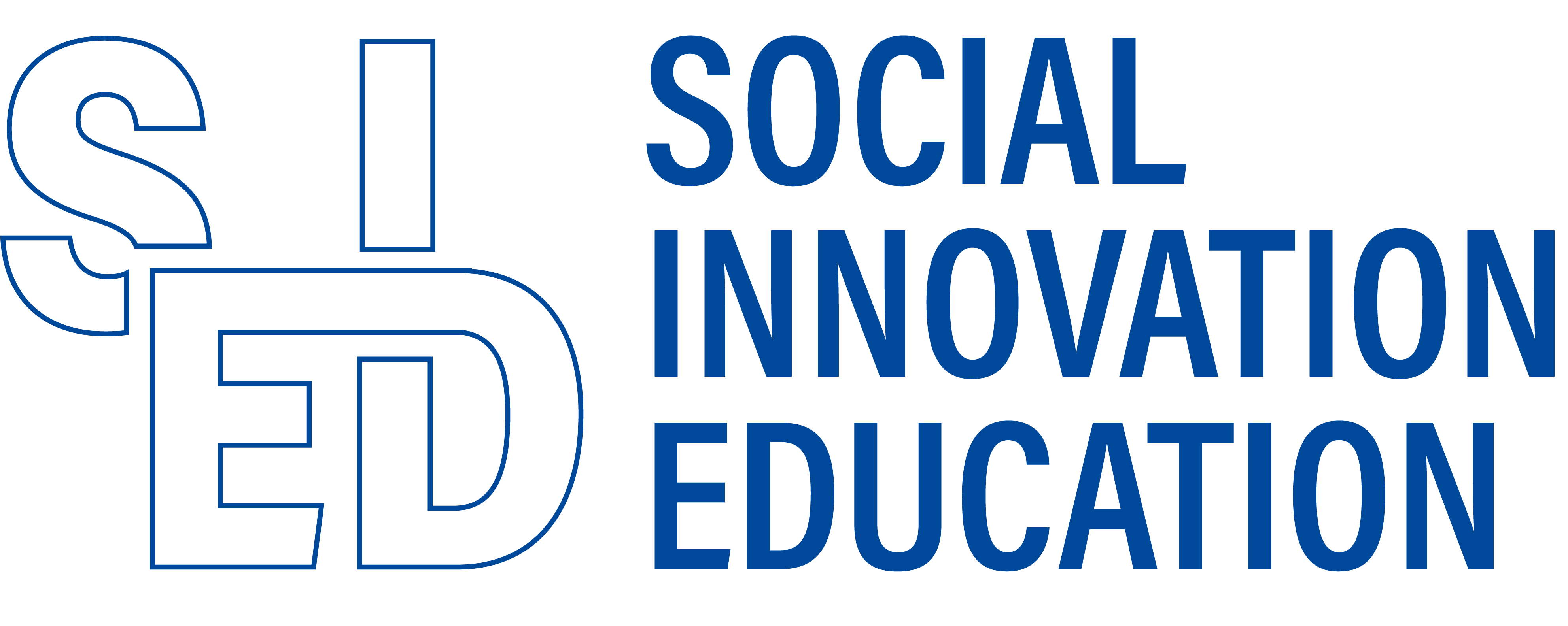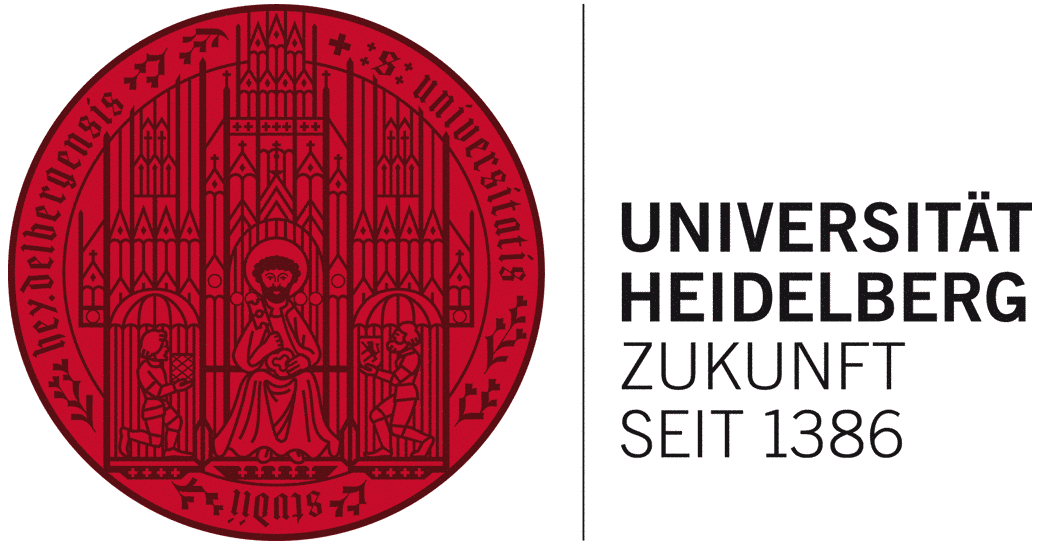
Curriculum
Das Projekt SIED bietet (Nachwuchs-)Führungskräften die Möglichkeit unterschiedliche europäische wohlfahrtsstaatliche Rahmendbedingungen und deren Relevanz für neue soziale Lösungen kennen zu lernen. Akademische und erfahrungsbezogene Fördereransätze sozialer Innovationen werden vermittelt und auch erprobt.
The SIED project offers (junior) managers the opportunity to get to know different European welfare state frameworks and their relevance for new social solutions. Academic and experiential approaches to promoting social innovations are taught and also tested.
Durch Theorie, Entwicklungsprozess und Austausch mit Praxispartnern werden wertvolle Kenntnisse bereitgestellt, damit die Teilnehmenden ihre eigene soziale Innovation in einer Organisation implementieren und verbreiten können.
Through theory, development process and exchange with practice partners, valuable knowledge is provided so that participants can implement and disseminate their own social innovation in an organisation.
Im eigens dafür entwickelten Curriculum besuchen die Teilnehmenden vier Partnerstandorte, an denen jeweils ein bestimmter Aspekt beleuchtet wird – abhängig vom jeweiligen Forschungshintergrund der Partnerorganisation und den regionalen Gegebenheiten hinsichtlich wohlfahrtsstaatlicher Settings.
In the specially developed curriculum, the participants visit four partner locations, each of which will focus on a specific aspect - depending on the respective research background of the partner organisation and the regional conditions regarding welfare state settings.
In Heidelberg setzen sich die Teilnehmenden mit Welfare State Traditions and Social Innovation auseinander. Bilbao setzt den Schwerpunkt bei Social Innovation Curriculum on regional innovation, based on the Basque transformation experience. Das Modul in Trier befasst sich mit Prototyping and Business Model Generation und der Partner in Oslo vermittelt Implementation and dissemination of social innovations (considering aspects of organizational development).
In Heidelberg, the participants deal with Welfare State Traditions and Social Innovation. Bilbao focuses on Social Innovation Curriculum on regional innovation, based on the Basque transformation experience. The module in Trier deals with Prototyping and Business Model Generation and the partner in Oslo teaches Implementation and dissemination of social innovations (considering aspects of organizational development).
Dadurch sollen folgende Ergebnisse realisiert werden:
The following results are to be realized:
- Teilnehmende werden in einem Ansatz sozialer Innovationsgenerierung wie Design Thinking ausgebildet.
- Teilnehmende erwerben neue unternehmerische Kompetenzen durch Entwicklung eines Prototyps einer sozialen Innovation im Rahmen des Business-Model-Generation Canvas, der von uns für die Entwicklung sozialunternehmerischer Projekte angepasst und in deutschen Labs erprobt wurde.
- Teilnehmende lernen an vier europäischen Standorten unterschiedliche regionale Ansätze sozialer Innovationen innerhalb spezifischer nationaler Settings kennen, so dass Elemente aus diesen in ihren Kontext transferiert werden können.
- Am Ende der Fortbildung hat jede/r Teilnehmende eine soziale Innovation bis zur Markteinführung entwickelt.
- participants will be trained in an approach of social innovation generation such as Design Thinking.
- participants acquire new entrepreneurial skills by developing a prototype of social innovation within the Business Model Generation Canvas, which has been adapted by us for the development of social entrepreneurial projects and tested in German labs.
- participants learn about different regional approaches to social innovation within specific national settings at four European locations, so that elements from these can be transferred to their context.
- at the end of the training, each participant has developed a social innovation up to market launch.
Each participant is asked to make suggestions for a social challenge on the basis of his/her working or organisational experience. The participants will join different teams that make a choice which social challenge will be the focus of a social innovation that is developed in the project by a specific participant team.
Die sozialen Innovationen, die in der Fortbildung entwickelt werden, werden bei der vierten Fortbildungseinheit (Oslo) einer Jury von Experten aus Wissenschaft und Praxis vorgestellt und bewertet, bei der auch Finanzierungsexperten teilnehmen. Die sechs bei den Pitches prämierten sozialen Innovationen der Teilnehmenden werden eingeladen, ihre Innovation auf dem Multiplier-Event in Brüssel am Ende des Projekts einer breiteren Öffentlichkeit vorzustellen.
The social innovations developed in the training are presented and evaluated at the fourth training unit (Oslo) by a jury of experts from science and practice, which also includes financing experts. The six social innovations of the participants that were awarded in the pitches will be invited to present their innovation to a broader public at the multiplier event in Brussels at the end of the project.
Modulbeschreibung
weitere Informationen folgen in Kürze
Module description
The training module is directed towards (junior) managers from various social service organizations in Europe who want to generate social innovation within their organizations.
The training module focuses on developing a deeper understanding of social problems and how these problems are framed in different welfare state traditions. Various strategies for tackling social problems will be presented and analyzed.
The lecturers of this teaching unit are members of the University of Heidelberg and experts from the field cooperating with the University.
The key takeaways from this advanced training module are:
- An introduction to various European Welfare Systems
- Identification of current and future challenges for social service organizations.
- An introduction to the theory of social innovation and methods of developing social innovation: e.g. case studies and theories of social innovation.
- Getting to know social innovation projects from the Rhine-Neckar region.
- Identification of a need (social problem) that the respective participant teams want to deal with during the course of the program.
- Introduction to methodological design (Design Thinking, Persona).
This learning module has been designed and coordinated by two social innovation labs in the Basque region, Agirre Lehendakaria Center (ALC) and Arantzazulab, in collaboration with diverse partners coming from academia, business and public institutions.
Agirre Lehendakaria Center is a collaborative initiative between The University of the Basque Country (UPV-EHU - Euskampus) and Columbia University in New York (The Advanced Consortium on Cooperation, Conflict and Complexity - AC4). ALC was created in 2013 to analyze and share the socio-economic transformation of the Basque Country in context of extreme difficulties from a complex system approach. This innovation lab specializes in designing, implementing and evaluating large scale “Social Innovation Platforms” in collaboration with UNDP, EIT-Climate KIC, La Caixa Banking Foundation and other leading institutions promoting Sustainable Human Development.
Arantzazulab is a social innovation lab located in Arantzazu sanctuary . It has been designed by a social-public-private partnership, and it was promoted by the Provincial Council of Gipuzkoa, the MONDRAGON Corporation, the Kutxa Foundation, the City Council of Oñati and the Franciscans province. Arantzazulab is conceived as a space for reflection, research and innovative experimentation to address the social challenges of the future, focusing on community and grassroots development and collaborative governance. To this end Arantzazulab is a Reference Centre for Collaborative Governance under the Regional Government strategy.
In the first edition of the executive training, the learning module focused on the Open Innovation Platform (OIP) approach that ALC implements, tests and studies. Social Innovation Platforms are the set of actors, methodologies, and actions that, in being integrated and open, generate new processes, products and services to deal with the challenges’ communities face (Espiau 2017).
ALC team initiated this learning module introducing the OIP approach and the key elements that form it.
Afterwards, ALC and Arantzazulab teams dove deep into the different elements that form these platforms. Per each Open Innovation Platform element, they shared what is it and examples on how it has been implemented. And what are the Open Innovation Platform elements? ALC distinguishes the following:
- Framing the Intent and Social Brokerage
- Deep Listening & sensemaking (collective interpretation)
- Co-creation process at 5 levels
- Prototyping
- Scaling
- Governance
- Developmental Evaluation
- Developmental Communication
- New Investment Strategies
In the first cohort, we learned how this approach has been implemented in two initiatives:
As in every module, the learning time is divided in the following types of activities:
- Keynote presentations from Social Innovation practitioners
- Case study presentations showcasing hands-on experiences
- Group reflection
- Participants putting in practice the OIP elements in their own projects.
In the time between the Bilbao module and Trier, the SIED participants use their acquired knowledge of deep listening techniques and co-creation processes to jointly develop solutions for their social need. Afterwards a systemic decision is made which defines the solutions’ scope and location within the system. In Trier, two main goals will be achieved. First, building a prototype of participants’ social innovation and second, transferring this prototype into a social business model. Building prototypes includes the stage of testing by presenting the prototype to experts invited. It becomes reasonable that prototypes must be persuasive by underlining and communicating the social innovations’ uniqueness. Transferring the prototype later into a social business model again shows the necessity to differentiate between values for client, customer and society and that several interests must be interconnected. Further, the stage of business model generation includes the aspect of financing, costs and revenues. Experience has shown that social business models need to adjust at intervals to changing environments to become sustainable. All these steps will introduced in an exemplifying way, as well as practical put into action by our participants.
The fourth and the last training module focuses on the process of dissemination and implementation of social innovations. It is emphasizes strategic approach to impact and scaling for impact, and collective character of innovation processes.
The training module offers an opportunity to experiment with tools used in strategic planning for impact, in preparation of communication with stakeholders, as well as tools used to facilitate learning processes in organizations and cross sectoral networks.
The lecturers have experience from establishing networks supporting social entrepreneurship, from publicly funded social innovation projects, and from the public administrative side of enabling social innovations to be developed, implemented and disseminated within social services. The module ends with social innovation pitch, where participants present their projects to the jury composed of external experts in social innovation and entrepreneurship field.
Key takeaways from this training module is:
- Innovations are not developed by lonely heroes, but by collaborative efforts, and therefore need wider ecosystems to grow.
- Strategic approach to impact creation entails integrating social innovation into well-established programmes and solutions, as well as efforts to change well established programmes and solutions.
- Ways of presenting the social, economic and governance aspects of your initiative need to be adjusted to the audience to attract the interest of new stakeholders for effective dissemination and implementation.

